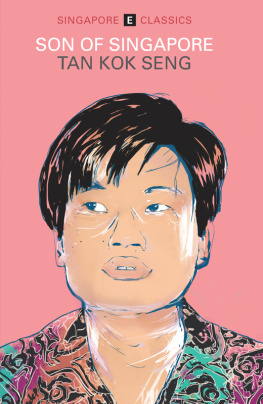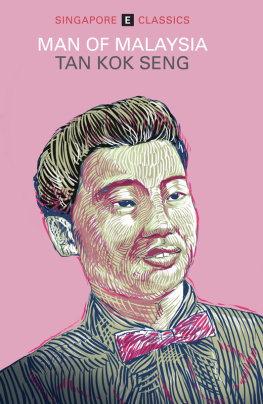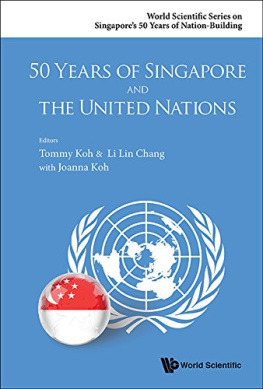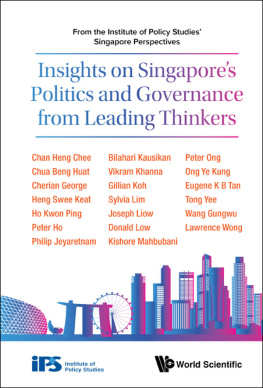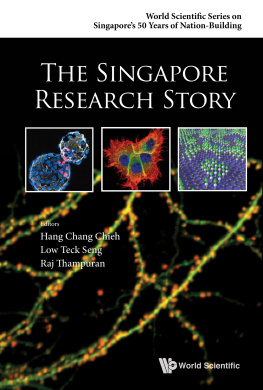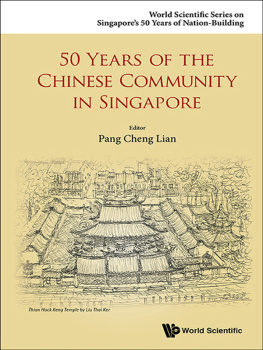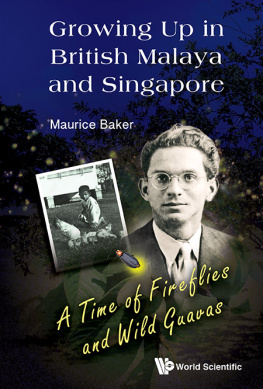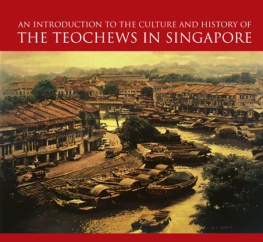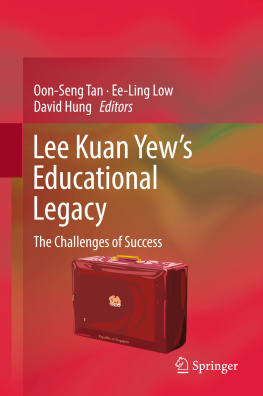TAN KOK SENG is the well-known author of a trilogy of books based on his life: Son of Singapore, Man of Malaysia and Eye on the World. His fourth book is a novel, originally published as Three Sisters of Sz, by Heinemann Asia in 1979.
Tans books were all written first in Chinese and afterwards rendered into English in a collaborative effort with his former employer, Austin Coates, for whom Tan worked in Malaysia and Hong Kong. Although his four books had been reprinted several times since their first publication, they were out of print for many years. Son of Singapore, Man of Malaysia and Three Sisters of Sze are now available from Epigram Books.
Tan resides in Singapore with his family.
OTHER BOOKS IN THE SINGAPORE CLASSICS SERIES
Green Is the Colour by Lloyd Fernando
Scorpion Orchid by Lloyd Fernando
The Immolation by Goh Poh Seng
Glass Cathedral by Andrew Koh
The Scholar and the Dragon by Stella Kon
Ricky Star by Lim Thean Soo
Spider Boys by Ming Cher
Man of Malaysia by Tan Kok Seng
Three Sisters of Sze by Tan Kok Seng
The Adventures of Holden Heng by Robert Yeo
SON OF SINGAPORE
TAN KOK SENG

Copyright 1972, 2013 by Tan Kok Seng
Introduction copyright 2013 by Don Bosco
All rights reserved.
Published in Singapore by Epigram Books
www.epigrambooks.sg
Son of Singapore was first published by
Heinemann Asia (Singapore) in 1972
Cover illustration 2013 by Nadirah Abdul Razak
Published with the support of

National Library Board,
Singapore Cataloguing-in-Publication Data
Tan, Kok Seng, author.
Son of Singapore / Tan Kok Seng.
Singapore : Epigram Books, [2013]
pages cm.
ISBN : 978-981-07-6832-4 (paperback)
ISBN : 978-981-07-6833-1 (ebook)
1. Tan, Kok Seng. 2. Working class - Singapore - Biography.
I. Title. II. Series: Singapore classics (Epigram Books)
CT1578.T36
920 -- dc23 OCN853464721
First Edition
10 9 8 7 6 5 4 3 2 1
To my children
Introduction
Son of Singapore, this book youre holding, marked the debut of local writer Tan Kok Seng. It is an autobiography, and covers the early years of his life: growing up on a farm in Singapore, working as a coolie on Orchard Road and finally moving to Kuala Lumpur to work as a driver.
Tan Kok Seng might seem a rather unlikely example of a literary figure. Even today, on the National Book Development Councils database of Singapore writers, he is described as a writer and labourer. Still, when Son of Singapore was published in 1972, reviewers were quick to praise it, thanks to its accessible and entertaining prose.
The book is packed with many elements of a fiction bestseller: it follows a likeable young character, feisty in spirit and curious about the world, who is plagued by a series of perplexing problems, often because he can be excessively earnest.
For his effort, Kok Seng was celebrated as one of the countrys Men of the Year by the New Nation newspaper. They used a nice photograph of Kok Seng. He was 33 years old then, looking young and confident, even radiant.
This book changed his life.
As you read Son of Singapore, at one point youll find Kok Seng reassuring himself that Heaven will never impede anyone on the upward path. (160)
One might also observe that Heaven will never impede anyone with a worthy story to tell.
In Kok Sengs case, he had only studied up to Primary Six in a Chinese school. Throughout his growing-up years, he could barely mumble a few words of English. And his early work experience could be summarised in two words: coolie, driver. So then, with all the odds seemingly against him, how did this acclaimed book, this literary legend, come to be?
Kok Seng told me this story:
He was working in Hong Kong as a driver for the British diplomat Austin Coates (also sometimes more affectionately called Kao Tze in this book). Coates had regular assignments all over Europe, and it was part of Kok Sengs duties to go along. All that he saw stirred him to spend his evenings writing down anecdotes about his life and recording his philosophical musings, thinking he would share these with his son and daughter when they were older.
Kok Seng started out writing in Chinese, scribbling away in the evenings, and his diligence caught the attention of his employer. To summarise things: Coates decided to lend his young friend a hand and together they translated Kok Sengs journal into English, working in the evenings to shape the material into the compelling narrative that would eventually be published as Son of Singapore.
In his preface to the original edition of Son of Singapore, Kok Seng mentions: It is somehow difficult for an Asian to expose himself and his inner workings in public.
In this case, he had originally intended to write only for his own children. But heavenand Austin Coatesdecided otherwise. And with the success that came swiftly, Kok Sengs inner workings indeed ended up being exposed in public, studied in schools and lauded in the media.
Son of Singapore tells a coming-of-age story about a youngster who in hindsight seemed almost destined to be a writer or poet.
Kok Sengs earliest memories were of the Japanese Occupation during World War II, a time filled with dread and fear. He vividly describes how a desperate young boy brought shame to his family by sneaking into another neighbours house to eat a bowl of rice. Kok Seng recognised this as a big lesson in the human condition: When someone becomes crazed with hunger, he dares to do mad things. (9)
From here on, Kok Seng developed a quiet pride in being able to think for himself. He started valuing wisdom and pithy communication; he was suspicious of misguided aphorisms:
The older generation used to say more children meant more prosperity. In fact, it was not so. Fewer children were easier to finance. There was more likely to be enough to go round. Yet, somehow, the older generation, despite having themselves experienced the hardships of being born into large families, could never grasp this idea. (37)
And when Kok Seng left school at a young age to help his father as a farmer, he became determined to ask even more difficult questions about life and its secret workings:
In the world there were, I knew, many things I did not understand. I hoped one day to be able to learn more.
But books I had left behind me forever. Now my only hope was to learn from human society itself. The only university I would ever go to was the university of the world. (53)
Like many other writers, Kok Seng learnt to live as a stranger in a strange land, surrounded by confusing customs and conflicting loyalties. As a child in his own home, growing up on a farm, he had problems with the superstitions and expectations of his other family members. In his early working life as a coolie, he learnt to observe with detachment the differences between the rich and poor, the politics at work, and the gulf between appearance and reality.
In his personal life, too, he came to socialise with a surprisingly candid group of Europeans who defied his assumptions about race and language and friendship. These Red Hairs, as he called them, mixed freely with people from all walks of life. They spoke English as well as Cantonese, Hokkien and Shanghainese, all fluently. Kok Seng felt challenged. These foreigners had mastered his language. He had to learn theirs too! But how?
Next page
